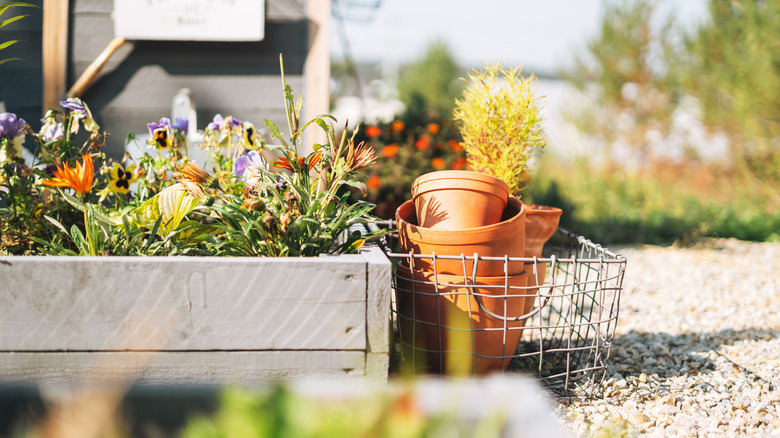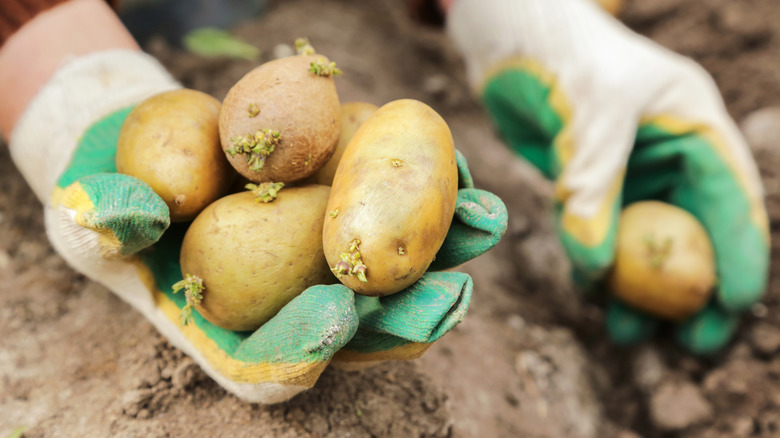The Vegetable You Should Be Planting This Fall
After you've harvested some great summer crops but before you winterize your garden, why not squeeze out a fall crop? When it comes to popular root vegetables, there are few more beloved than the simple potato, and according to Lindsey Chastain, founder of The Waddle and Cluck, they are one of the easiest and most sensible fall crops to grow.
"Potatoes do great in the cooler weather and soil," Chastain told Food Republic. "Because potatoes grow underground, their roots are protected from the earliest frosts. The soil stays warmer longer, so you have time in the fall to get those roots well established before the soil gets too cold." While you absolutely can plant potatoes in warmer weather, it's best to reserve those ideal climates for more sensitive fruits and vegetables like tomatoes, which do horribly in the cold. Plus, potatoes keep quite well, so they're great for stocking your pantry before winter sets in if you want to guarantee produce from your own garden through cold months.
Chastain explained that you can harvest potatoes two and a half to three months after planting, giving you the perfect window between your summer plants dying back and the first frosts setting in. Just remember that, despite them being a root vegetable, the first frost will kill off the plant, so be sure to plan your garden's transition appropriately, or you'll end up with stunted potatoes. But aside from planning around that frost, potatoes couldn't be easier to grow.
Tips for growing potatoes in the fall
From topping off compost to mulching your garden beds, preparing ideal potato growing conditions is almost identical to preparing your garden for fall in general. Lindsey Chastain said you won't even have to worry about garden pests too much since the cool weather reduces their numbers greatly.
"Potatoes like loose, well-draining soil," Chastain noted. "Add some mulch like shredded leaves on top and mix some compost in with the soil." Even if you don't plant in the fall, you should always mulch your garden after your last summer harvest. It preps the soil for next year by adding more nutrients and preventing erosion, so the only real difference here is that you'll still be consistently watering crops for a little longer.
Chastain also explained that potatoes love to be in the sun, so a little extra mulch on top helps maintain soil moisture levels while still insulating plant roots from cooler night temperatures. If you live in an area with early frosts but can't bring yourself to tear up your summer garden for a potato crop, you can always squeeze out a few more weeks of productivity with some frost protection cloth. By just draping this fabric over your potato plants, you can protect them from the worst of freezing temperatures and give them the last stretch of time that they'll need before they're ready to harvest.


